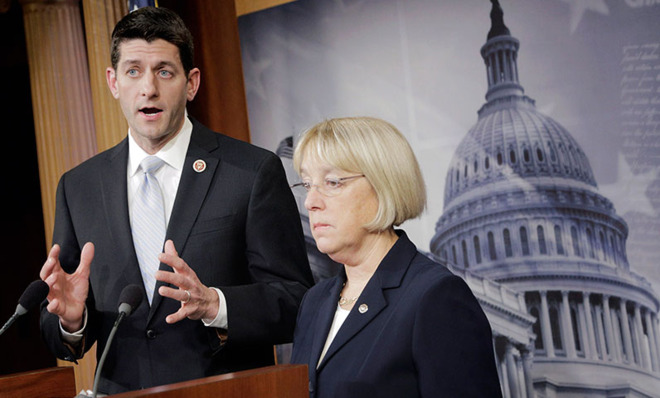How to help the long-term unemployed: 5 theories
Just in time for the holidays, Congress is abandoning those who have been out of work longest

A free daily email with the biggest news stories of the day – and the best features from TheWeek.com
You are now subscribed
Your newsletter sign-up was successful
Just in time for the holidays, Congress is abandoning the long-term unemployed, said Matthew O'Brien at The Atlantic. Thanks to last week's budget deal, 1.3 million workers who have been unemployed for more than six months will see their benefits expire on Dec. 28. Another 800,000 will have their aid cut in the next few months. Conservatives love this move, of course. "They think the only reason someone couldn't find a job today is if they're lazy — or addicted to drugs — so we just need to kick them off the dole to make them less lazy." But such "social Darwinism masquerading as economics" ignores the fact that this economic recovery "still feels like a recession to most people" — not least because there are still three jobless people for every opening.
Indeed, if there's a word to describe the plight of the long-term unemployed, it's "screwed," said Matthew Yglesias at Slate. Most of them "probably won't be able to find jobs ever" because companies don't want to hire anyone who has been out of work for more than a few months. "The country failed these people first by letting the labor market stay so slack for so long that they became unhireable, and now we're going to fail them again."
In fact, extending benefits yet again would be the height of cruelty, said The Wall Street Journal in an editorial. "Far more than another government check," the jobless need the U.S. economy to create more jobs. And that simply won't happen if employers and states remain saddled with "higher job-killing payroll taxes" to pay for extended benefits. Back in 2009, when the Obama administration extended these benefits to up to 99 weeks, unemployment was at 10 percent; do we need to extend them again now that it's seven percent and we're in a recovery "that President Obama often hails as miraculous"?
The Week
Escape your echo chamber. Get the facts behind the news, plus analysis from multiple perspectives.

Sign up for The Week's Free Newsletters
From our morning news briefing to a weekly Good News Newsletter, get the best of The Week delivered directly to your inbox.
From our morning news briefing to a weekly Good News Newsletter, get the best of The Week delivered directly to your inbox.
It's about time we woke up to the way "generous unemployment benefits may prevent jobs from opening up," said John Carney at CNBC. Employers know they have to pay significantly more than the benefit of roughly $300 a week to get new hires to show up; if they can't pay those wages, they don't bother adding jobs. The answer isn't to extend more benefits, but to reform them "so that they aren't job-destroying."
Some reforms certainly "merit a try," said Bloomberg. We could streamline our retraining programs and help people pay for moving to take a job. But in the meantime, extending benefits for another year would "directly relieve the distress" of people who want to work, at a reasonable price in government spending. When the U.S. has "jobs for all who want them," it will be far easier to make the case against extending a hand. But "the U.S. isn't there yet, not by a long way."
A free daily email with the biggest news stories of the day – and the best features from TheWeek.com
Sergio Hernandez is business editor of The Week's print edition. He has previously worked for The Daily, ProPublica, the Village Voice, and Gawker.